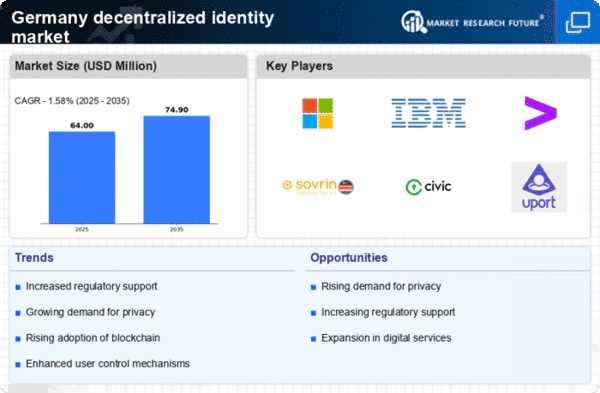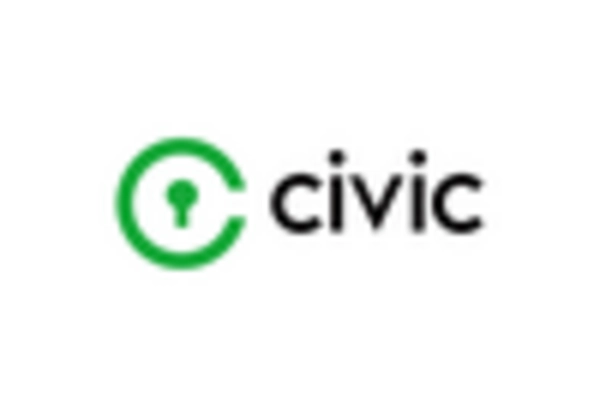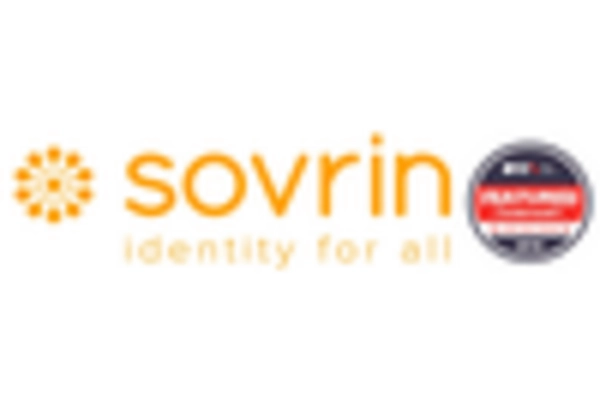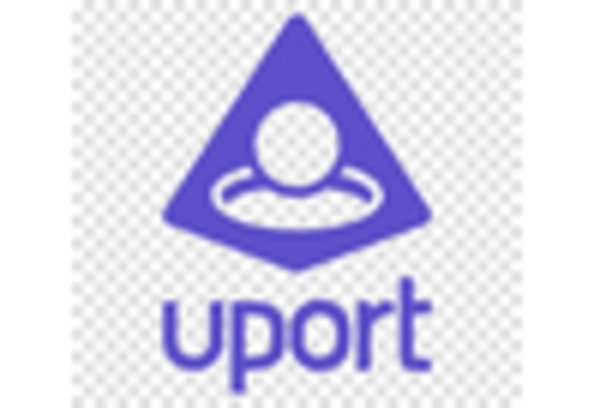Increased Awareness and Education
Increased awareness and education regarding the benefits of decentralized identity solutions are contributing to the growth of the market in Germany. As organizations and consumers become more informed about the advantages of decentralized identity, such as enhanced security and user control, the adoption rate is expected to rise. Educational initiatives by industry associations and government bodies are playing a pivotal role in disseminating knowledge about decentralized identity technologies. Workshops, webinars, and informational campaigns are helping to demystify these solutions, making them more accessible to a broader audience. This heightened awareness is likely to lead to a more informed consumer base, which could drive market growth by approximately 20% over the next few years. As understanding deepens, the decentralized identity market is poised to benefit from increased demand and investment.
Growing Demand for Privacy and Security
In the context of the decentralized identity market, there is a growing demand for enhanced privacy and security among consumers and businesses in Germany. With increasing concerns over data breaches and identity theft, individuals are seeking solutions that provide greater control over their personal information. Decentralized identity systems offer a way to manage identities without relying on centralized databases, thereby reducing the risk of large-scale data breaches. According to recent surveys, approximately 70% of German consumers express a preference for identity solutions that prioritize privacy. This shift in consumer sentiment is driving companies to invest in decentralized identity technologies, which are perceived as more secure and resilient. As organizations recognize the importance of safeguarding user data, the decentralized identity market is likely to expand, with an anticipated growth rate of around 30% in the coming years.
Regulatory Support for Digital Identity
The decentralized identity market in Germany is experiencing a notable boost due to increasing regulatory support. The German government has been actively promoting digital identity solutions, aligning with the European Union's eIDAS regulation. This regulatory framework aims to enhance trust in electronic transactions and facilitate cross-border recognition of electronic identities. As a result, businesses are encouraged to adopt decentralized identity solutions, which are perceived as more secure and user-centric. The market is projected to grow at a CAGR of approximately 25% over the next five years, driven by this supportive regulatory environment. Furthermore, the emphasis on data protection and privacy in Germany aligns with the principles of decentralized identity, making it an attractive option for both consumers and enterprises. This regulatory landscape is likely to foster innovation and investment in the decentralized identity market, positioning Germany as a leader in this domain.
Collaboration Among Technology Providers
Collaboration among technology providers is emerging as a key driver in the decentralized identity market in Germany. Partnerships between startups, established tech firms, and academic institutions are fostering innovation and accelerating the development of decentralized identity solutions. These collaborations enable the sharing of expertise and resources, leading to the creation of more robust and scalable identity systems. For instance, joint ventures focused on integrating blockchain technology with existing identity frameworks are gaining traction. This collaborative approach not only enhances the technological capabilities of decentralized identity solutions but also broadens their applicability across various sectors, including finance, healthcare, and public services. As a result, the market is expected to witness a compound annual growth rate of around 22% in the coming years, driven by these strategic alliances.
Technological Advancements in Identity Solutions
Technological advancements are playing a crucial role in shaping the decentralized identity market in Germany. Innovations in cryptography, blockchain technology, and biometrics are enabling the development of more secure and efficient identity solutions. These advancements facilitate the creation of self-sovereign identities, allowing users to manage their personal data without intermediaries. The integration of artificial intelligence and machine learning is also enhancing the capabilities of decentralized identity systems, making them more user-friendly and accessible. As a result, the market is witnessing a surge in investment, with projections indicating a potential market size of €1 billion by 2027. This technological evolution is likely to attract a diverse range of stakeholders, including startups and established tech companies, further driving the growth of the decentralized identity market in Germany.
















